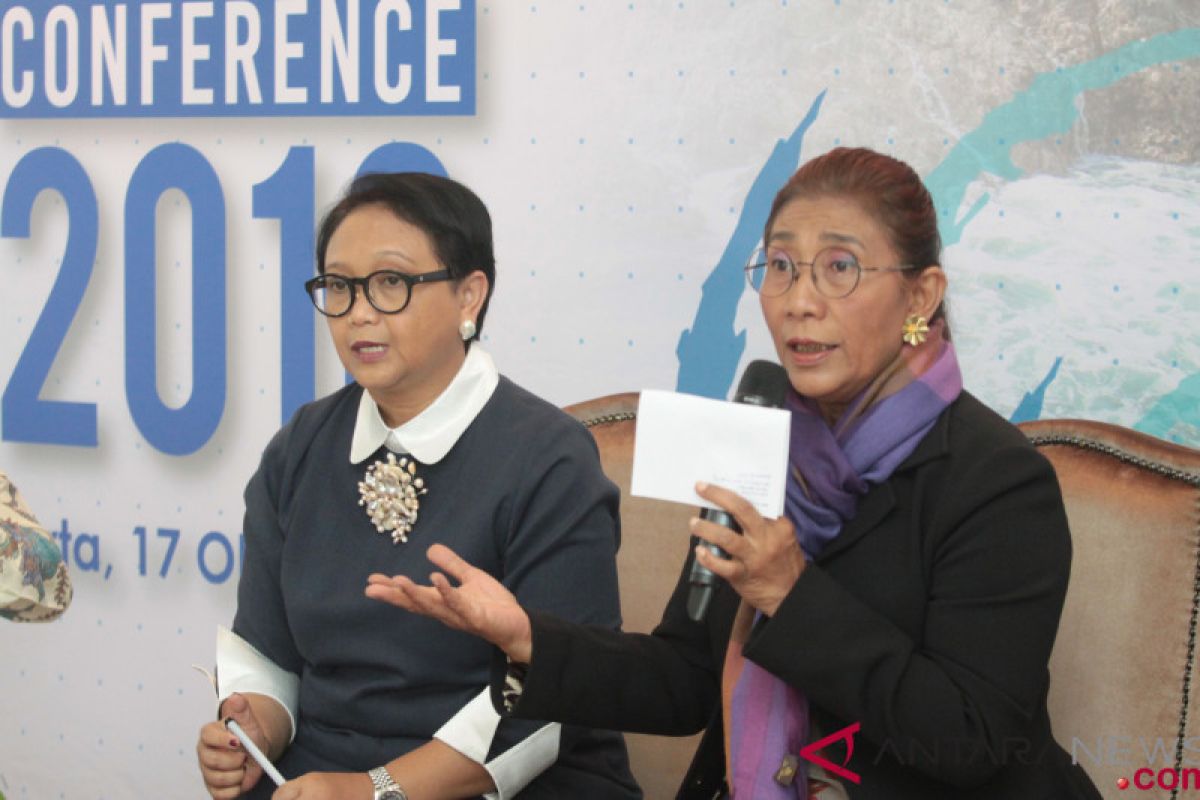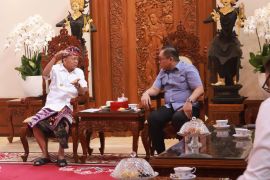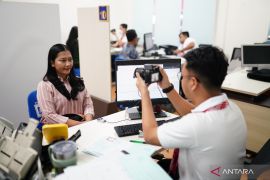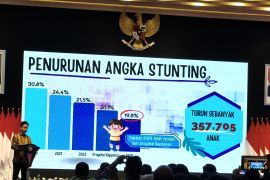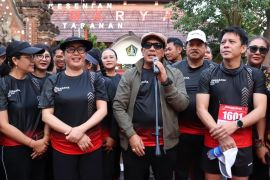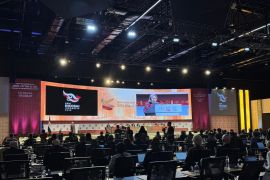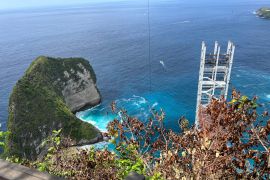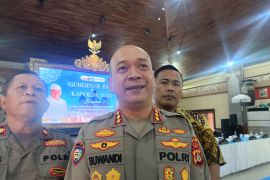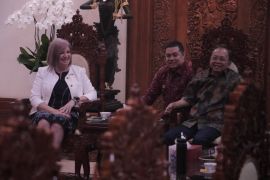This OCC is seen as a momentum for Indonesia to voice its strong fight against illegal, unreported, and unregulated (UUI) fishing and fisheries crimes as a top priority, Susi Pudjiastuti, the Maritime and Fisheries Affairs Minister, stated here on Saturday.
The conference will also offer Indonesia an opportunity to confirm its commitment in sustainable fisheries sector, sustainable blue economy, and maritime security.
Fighting UUI fishing has exactly to with maritime security that the government has to uphold. Therefore, this move is part of a region-wide trend in the Asia Pacific, which has seen coastal states, making significant changes to their respective laws and regulations in order to more effectively address shared threats to living marine resources.
IUU fishing, in particular, is an area of common concern given the highly migratory nature of fish and crossing borders without `respecting? maritime boundaries of countries.
IUU fishing is intertwined with other crimes in Indonesia. In many cases, transnational organized crimes (TOC), such as people smuggling, trafficking in persons, forced labor, and drug trafficking, are being committed along with the IUU fishing activity. One example is the Benjine Case in Maluku, where `illegal fishers? traffic mostly laborers from countries such as Cambodia and Myanmar.
Given the transnational aspect of IUU fishing, Indonesia can benefit from having a strong collaboration with other concerned countries in the region.
One such country is the Philippines, which in recent years has adopted several measures to address IUU fishing within its borders, the minister noted.
In Indonesia, Pudjiastuti has taken a hard-line stance against IUU fishing. Her policy of sinking vessels conducting IUU fishing has been hailed nationally and internationally.
The sinking vessel initiative is also complemented by the other measures, including the establishment of two tasks forces, the imposition of a fishing moratorium, the analysis and evaluation of fisheries licenses, the imposition of a non-transshipment policy, and the ban on unsustainable fishing gears.
Indonesia has also adopted a National Plan of Action on IUU fishing as required by the International Plan of Action on IUU fishing.
Another breakthrough is making the fishing industry respect human rights values through the enactment of Minister of Marine Affairs and Fisheries Regulation No. 35/PERMEN-KP/2015 on System and Certification of Human Rights on Fisheries Business.
It is also worth noting that Law No. 31/2004, as amended by Law No. 45/2009 on Fisheries, strictly imposes twin penalties of imprisonment and fines on individuals and corporations committing IUU fishing.
However, the Fisheries Law and other relevant domestic regulations do not clearly address transnational criminal activities in the fisheries context.
Law No. 8/2010 on Countermeasure and Eradication of Money Laundering established the connection between money laundering and criminal acts in the marine and fisheries sector by identifying the latter as one of the possible predicate offenses of the former.
The adoption of this law followed up on Indonesia?s ratification of the United Nations Convention on Transnational Organized Crime (otherwise known as the Palermo Convention) on Dec 15, 2000, by incorporating related provisions of the Convention.
Law No. 8/2010 connects money laundering to assets acquired from various criminal acts (including IUU fishing) which are subject to imprisonment for four or more years.
Even though the provision linking money laundering to marine and fisheries and crimes needs to be further tested, it is nonetheless an important milestone in combating fisheries crimes.
However, the 2018 OOC is one of Indonesia`s concrete commitments in implementing maritime diplomacy and the vision of making the nation a "World Maritime Axis."
This conference is expected to result in measured, real, and sustainably impacted commitments for maritime cooperation among countries.
The 2018 OOC will not only involve government actors but also multi-stakeholders, including the private sector, academics, non-governmental organizations, civil society organizations, youth, and practitioners in the marine sector.
Editing by Otniel
Reporter: Eliswan Azly
Editor: Fardah Assegaf
Copyright © ANTARA 2018
